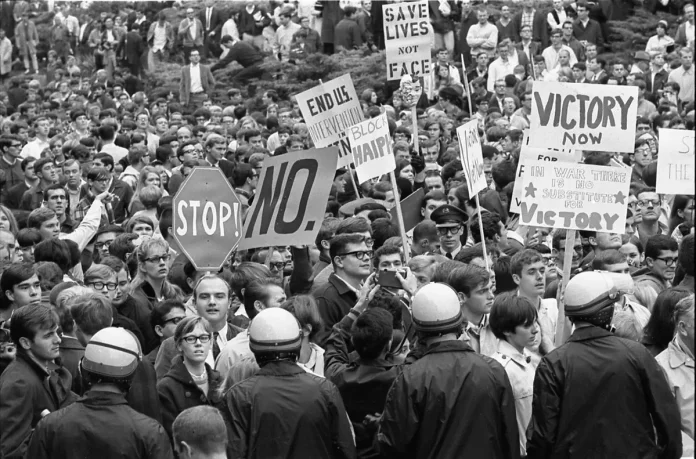It has been twenty years to the month that I found myself in the middle of a campus riot. Let me explain.
In October 2000, I was installed as the first Vice Chancellor [President] of Uganda Christian University in Mukono, Uganda. I had been recruited by Archbishop Livingstone Nkoyoyo to head a young Anglican university founded in 1997 on the site of historic Bishop Tucker Theological College. My wife and I had felt a missionary call to “come over and help” with this project of developing Christian higher education in the Global South.
Looking back over my ten years at UCU, I am amazed and thankful at how few crises I encountered. But in April 2004, a group of students began a protest movement that devolved into riot. It was not unusual for African universities to be shut down, as either students or faculty “laid down their tools” and at times took up their cudgels. But it was unusual at UCU as a Christian university.
Upon my arrival in 2000, I had helped formulate a set of “Instruments of Identity” – doctrinal, moral and spiritual” – fashioned along lines of the Apostles’ Creed, the Ten Commandments, and the Lord’s Prayer. Under the Commandment honoring parents, it read: “We shall respect the legitimate authority of the state, the family, the Church, and the University. We shall observe University rules and not participate in any public riot.” Students, whether Christian or not, were to publicly acknowledge the Instruments when they joined the University.
The cause of my campus riot had to do with tuition fees. As a startup institution with no endowment, no government aid, and no alumni to support it, we had to depend on collecting regular fees from students, and many parents gave sacrificially to that end. Not only did we collect fees, but we had to increase fees every year (U.S. parents can identify with this). Later, I formulated a fee policy based on “moderate annual increases, with options to pay over the semester, to be announced with ample notice.” However, in 2004, we had made the mistake of announcing increases for the upcoming semester while the students were still on campus.
The protest leaders met on the soccer pitch and began to gather sympathizers, about 200 in all out of several thousand students preparing for final examinations. They sent a message through the President of the Student Guild (the student government) that they would shut down the university unless the new fees were revoked. So I met in my office with Moses Rwothomio. While many Guild Presidents were young students from the law faculty (law is an undergraduate degree in Uganda), Moses was a “Reverend,” a tall, mature priest from northern Uganda. He was widely respected, but he also felt obliged to voice the demands of the protesters.
Here is where my background came in. I had been a university student in the late Sixties and witnessed first-hand how the “Student Revolution” had led to violence – occupying the student union with guns (at Cornell) and battling police (in Berkeley) – the precursors of today’s campus antics. So after Moses conveyed the student demands, I said to him: “Moses, students have a right to protest, but they do not have a right to disrupt the university. I have lived through student riots in the past, and let me assure you, it is not going to happen here.”
Read it all at Stephen’s Witness



